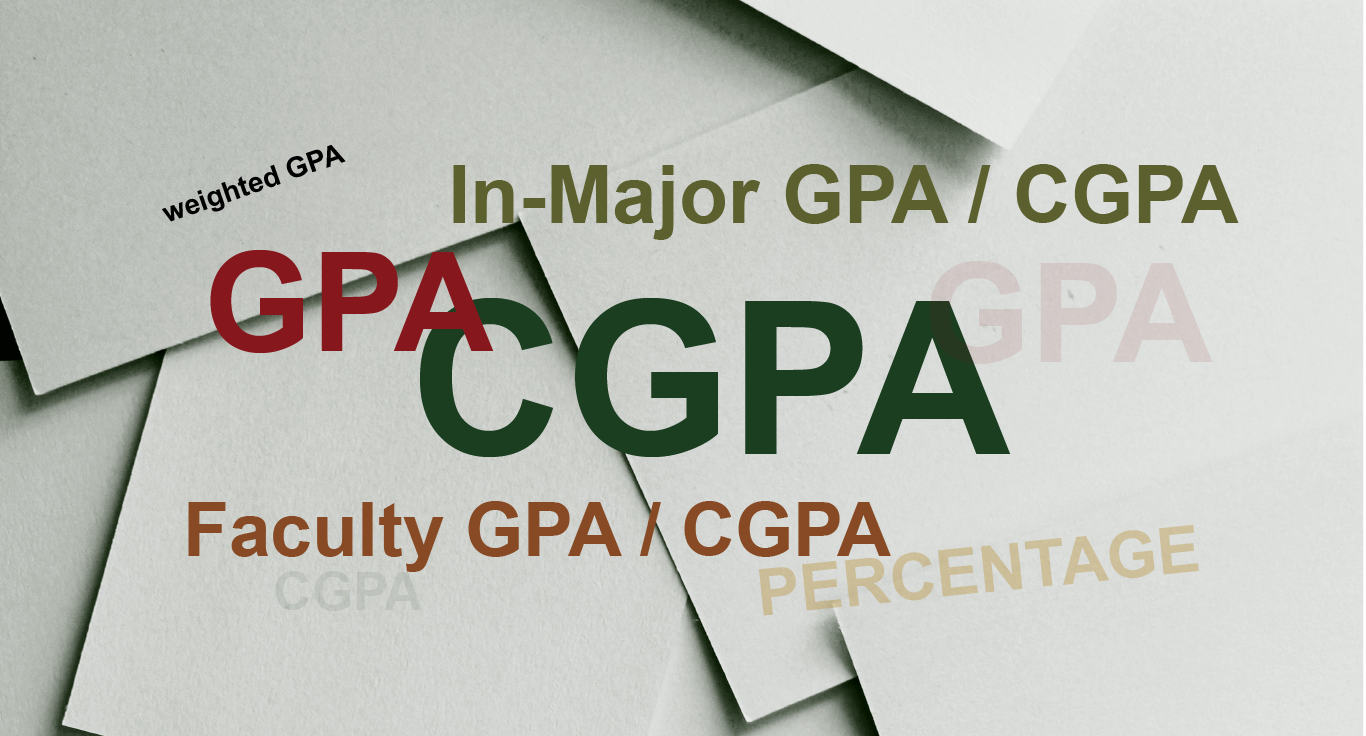Study Guide
Is a 3.3 GPA Good? Colleges That Accept a 3.3 GPA
Let’s have a calm and insightful chat about GPA and its role in academic evaluation. GPA, which stands for Grade Point Average, is a numerical representation of your academic performance. It’s a way for educational institutions to assess your overall achievement by averaging your grades in your courses.
Understanding what constitutes a “good” GPA is crucial because it can greatly influence academic opportunities. It’s important to clearly understand how your GPA is evaluated and what it means for your educational journey.
Now, we sense that you’re interested in GPA evaluation, specifically regarding a GPA of 3.3. That’s awesome! In our conversation, we’ll explore whether a 3.3 GPA is considered good and delve into the colleges that accept this GPA range. This way, you’ll gain insights into your potential academic prospects and learn more about the opportunities available.
So, let’s dive into the world of GPA and discover what a 3.3 GPA signifies for you and the colleges that may welcome your achievement.
What Does a 3.3 GPA Mean?
GPA provides a snapshot of your overall achievement by calculating your average grades in your courses.
To calculate your GPA, each grade is assigned a numerical value based on the common GPA scale, which is often a 4.0 scale. On this scale, the highest achievable GPA is 4.0.
So, when you earn a grade, say, an A, it might be assigned a value of 4.0, while a B could be assigned a value of 3.0. These values are used to calculate your average GPA.
Now, with a 3.3 GPA, you’re performing academically at a respectable level. It indicates that you’ve consistently earned above-average grades, although not at the topmost level. It’s a solid indicator of your dedication, effort, and commitment to your education.
Remember, GPA is just one aspect of your academic profile. While it’s important, it doesn’t define your abilities or potential. Your experiences, skills, extracurricular involvement, and personal growth also contribute to your overall development.
So, let’s explore further and see how a 3.3 GPA can shape your academic journey and the opportunities that may lie ahead for you.
If anybody tells you that GPA is unimportant, show them this: Does GPA Matter in College, and How Can You Raise it Higher?
Understanding GPA Ratings
GPA ratings are often categorized into ranges that give a general idea of your academic performance. These ranges can vary slightly depending on the institution, but they generally include poor, average, good, and excellent designations.
It’s important to remember that GPA evaluation can be somewhat subjective. Different people, institutions, and industries may have varying opinions on what constitutes a “good” GPA.
While a high GPA is generally regarded positively, it’s essential to consider other factors, such as the rigor of your coursework, the competitiveness of your school, and your personal goals.
Additionally, it’s worth noting that external factors can also influence the perception of a “good” GPA. For example, certain fields or graduate programs may have higher GPA expectations due to the level of competition or specific admission requirements.
Researching and understanding the GPA expectations of the institutions or industries you like is always a good idea.
Remember that GPA is just one measure of your academic performance and doesn’t define your worth or potential. Focusing on personal growth, gaining knowledge, and developing skills that will contribute to your overall success and fulfillment is essential.
So, while GPA ratings provide a general guideline, it’s crucial to take a holistic approach to your education and embrace opportunities for growth beyond the confines of a numerical rating.
We can as well talk about 1,5 GA: Is A 1.5 GPA Good? Colleges That Accept A 1.5 GPA
Is a 3.3 GPA Good?
When we look at GPA ratings, a 3.3 falls from above average to good, depending on the grading scale used. It’s important to keep in mind that GPA ratings can vary between different educational levels, such as high school and college.
It’s also important to consider your personal goals and individual circumstances. GPA is just one aspect of your academic profile. Admissions committees and employers often consider a range of factors such as extracurricular activities, letters of recommendation, essays, and standardized test scores.
Additionally, your GPA may not define your entire educational journey or your potential for success.
Suppose you have specific aspirations, such as applying to graduate school or pursuing a particular career path. In that case, it’s a good idea to research the GPA expectations of those programs or industries. Some may place more weight on GPA, while others may consider broader qualifications.
Remember that your GPA is not the sole determinant of your worth or abilities. It’s a reflection of your academic performance during a specific period. Focus on your personal growth, learning experiences, and developing skills that align with your interests and goals.
A 3.3 GPA shows you’re on the right track, and with dedication and continuous improvement, you can achieve even more.
Some colleges accept 4.0 students. More details here: Is a 4.0 GPA Good? Colleges That Accept a 4.0 GPA
Is a 3.3 GPA Good for College Admissions?
When it comes to college admissions, a 3.3 GPA can be considered good, but it’s important to keep in mind that it’s just one factor among many. Different colleges have varying standards, so it’s essential to research the specific requirements of the schools you’re interested in.
While GPA is important, admissions committees consider other factors like test scores, extracurricular activities, essays, and recommendation letters. Don’t worry if your GPA is slightly lower than you hoped for. Colleges value a well-rounded application highlighting your strengths, passions, and personal growth.
Remember, a 3.3 GPA can still open doors to many colleges, especially when paired with other impressive aspects of your application. Stay positive and focus on presenting your best self to the admissions committees!
Some schools accept a 1.7 GPA. Click here for more: Is a 1.7 GPA Good? Colleges That Accept a 1.7 GPA
Is a 3.3 GPA Good for Grad School?
Regarding grad school admissions, a 3.3 GPA can be considered decent, but it’s important to remember that it’s just one aspect of your application.
Grad schools typically look beyond GPA and consider other factors such as research experience, letters of recommendation, personal statements, and standardized test scores.
While a higher GPA can be advantageous, it’s not the sole determining factor for admission. You must showcase your strengths, skills, and passion for the field through your application materials.
Additionally, some grad programs may have specific GPA requirements, so it’s always a good idea to research and understand the expectations of the programs you’re interested in.
Remember, a 3.3 GPA can still be competitive, especially if you have other notable achievements and experiences to support your application. Keep up the hard work, and stay confident in your abilities!
If you want to know the lifespan of the GRE, here we go: How Long Are GRE Scores Valid?
Is a 3.3 GPA Good for Middle School?
Regarding middle school, a 3.3 GPA can be considered good and commendable. It shows that you’re performing well academically and maintaining a solid level of achievement.
Remember, middle school is an important time for learning and development, and your GPA is just one measure of your progress.
It’s great that you’re putting in the effort and performing at this level. Keep in mind that middle school is also a time to explore different subjects, discover your interests, and develop skills beyond academics.
So, along with maintaining a good GPA, engage in extracurricular activities, pursue your passions, and develop a well-rounded profile. Remember, success in middle school sets a strong foundation for high school and beyond.
Is a 3.3 GPA Good for High School?
When it comes to high school, a 3.3 GPA is good and something to be proud of. It shows that you’re maintaining a solid level of academic performance and are consistently putting in the effort.
While GPA is an important factor in college admissions, it’s not the only one. Colleges also consider other aspects, such as extracurricular activities, essays, and standardized test scores.
So, if you have a 3.3 GPA, it’s important to continue challenging yourself academically, exploring your interests, and showcasing your strengths in other areas.
Additionally, remember that individual colleges may have different expectations and requirements, so it’s always a good idea to research specific institutions.
Ultimately, a 3.3 GPA is a good achievement, and with dedication and a well-rounded profile, you can aim for even greater opportunities in the future. Keep up the great work!
What Letter Grade is a 3.3 GPA?
A 3.3 GPA typically corresponds to a letter grade of B. GPA is often calculated on a 4.0 scale, where an A is usually considered a 4.0, B is a 3.0, and so on. Since a 3.3 falls between a 3.0 and a 3.4, it is generally rounded up to a B.
It’s important to note that grading scales may vary between schools or educational institutions, so it’s always a good idea to check with your specific school to understand their grading system. Overall, a 3.3 GPA is a solid achievement and reflects good academic performance.
Converting 3.3 GPA to Percentage: A Comprehensive Guide
Converting a 3.3 GPA to a percentage can be tricky since there isn’t a standardized conversion formula. However, I can offer you a general guideline. Since a 3.3 GPA is a B, you can estimate the corresponding percentage range.
A B is typically around 80-84% in many grading systems. So, you could roughly equate a 3.3 GPA to a percentage between 80% and 84%. Remember that this is just an approximation, and the exact conversion may vary depending on your school or institution’s grading scale.
It’s always best to consult with your school’s guidelines or academic advisor for a more accurate conversion. Remember, percentages are just one way to represent your academic performance, and GPA provides a more comprehensive evaluation.
Top 7 Colleges That Accept a 3.3 GPA
We’ve got you if you’re interested in exploring colleges that accept a 3.3 GPA. While admission requirements vary among colleges, many institutions consider applicants with a 3.3 GPA. Here are seven notable ones, according to Cappex:
- Sam Houston State University
- University of Nevada-Las Vegas
- The University of Texas at San Antonio
- James Madison University
- Pace University
- Washington State University
- Valencia College
Remember, admission decisions are based on various factors, so showcasing your strengths, experiences, and personal growth in your application is important. Don’t hesitate to reach out to each college’s admissions office for more information and guidance. Good luck in your college journey.
Can I Still Get Scholarships With a 3.3 GPA?
Scholarships are not solely based on GPA, so you still have plenty of opportunities with a 3.3 GPA. Many scholarships consider factors beyond academic performance, such as extracurricular involvement, leadership roles, community service, and special talents.
Focus on highlighting your achievements in these areas to increase your chances. Additionally, need-based scholarships and financial aid options are available that consider your financial circumstances.
It’s worth researching scholarships offered by specific colleges as well, as some institutions offer scholarships tailored to their own criteria. Don’t hesitate to reach out to your school’s guidance counselor or search online scholarship databases to explore the various options available to you.
However, here are four scholarships to start with.
- University of California GloCal Health Fellowship for Developing Countries
- New American University Scholarship at Arizona State University
- King Scholars Program at Dartmouth College for International Students
- Stamps Scholars Program for International Students
How Does a 3.3 GPA affect my Career Prospects?
I understand your concern, but let’s debunk some misconceptions about GPA and its impact on career prospects. A 3.3 GPA is a solid achievement that reflects your dedication and hard work.
While some industries and professions may emphasize GPA, many employers prioritize skills, experiences, and networking connections. Focus on leveraging your internships, projects, and extracurricular activities to showcase your practical abilities.
Develop a strong personal brand that emphasizes your unique strengths and qualities. Remember, career success is a combination of various factors, and your GPA is just one piece of the puzzle.
Keep building on your strengths and pursuing opportunities that align with your career goals. With determination and a well-rounded skill set, you can create promising career prospects.
FAQ
A 3.3 GPA is higher than the national average for high school students, but it is not enough to get you into highly selective schools. The average GPA at 52.21% of schools is less than 3.3. You can apply to colleges and have a high chance of gaining admission. With a 3.3 GPA, you have a slim chance of admission.
If you have a 3.0 GPA and 15 credit hours, you can raise your GPA to 3.5 by achieving straight A’s throughout your next (15 credit) semester. If you already have 60 credit hours and a 3.0 GPA, a straight-A semester will only raise your GPA to 3.2.
A 3.3 GPA suggests good performance in all classes, with a consistently positive record on tests and homework assignments because it is on the brink of a B+ average. With this in mind, a 3.3 GPA qualifies your application for admission to most colleges.
Master’s programs require a four-year undergraduate degree with a minimum average of B/3.00 in either the last two years of study or the total average. It also requires a minimum grade of B+/3.33 in your master’s program for doctoral studies.
Conclusion
I hope our conversation has provided valuable insights into GPA’s role in academic evaluation. GPA, or Grade Point Average, is a numerical representation of your academic performance, calculated by averaging your grades in your courses.
It’s important to understand that a 3.3 GPA is good and commendable. It shows that you’re performing well academically and maintaining a solid level of achievement. However, it’s crucial to remember that GPA is just one aspect of your academic profile. Admissions committees and employers also value skills, experiences, and networking connections.
While some industries and professions may emphasize GPA more, many prioritize practical abilities, experiences, and personal qualities. By leveraging internships, projects, and extracurricular activities, you can showcase your practical skills and stand out in the job market.
Additionally, it’s important to research industries and professions that place less emphasis on GPA. Certain fields value hands-on experience, creativity, and specialized skills, which can you can harness through internships, projects, and relevant extracurricular involvement.
To enhance your career prospects, develop a strong personal brand highlighting your unique strengths and qualities. Emphasize your achievements, leadership roles, and any notable projects or initiatives you’ve been involved in.
Remember, your GPA is just one measure of your academic performance and doesn’t define your worth or potential. By taking a holistic approach to your education, focusing on skills development, networking, and showcasing your unique strengths, you can create promising career opportunities for yourself.
References
- cappex.com – 3.3 GPA Colleges: See Schools That Accept a 3.3 GPA
- themombuzz.com – What Is the Purpose of College Admissions?
- Moha.co.ke – How to Calculate GPA
Recommendation
- University Of California Los Angeles Acceptance Rate | Requirements, SAT/ACT Scores, GPA, & Admissions
- Albany Medical College Acceptance Rate | Requirements, SAT/ACT Scores, GPA, & Admissions
- Springfield College Acceptance Rate | Requirements, SAT/ACT Scores, GPA, & Admissions
- Lowest Acceptance Rate Colleges | Requirements, SAT/ACT Scores, GPA, & A
- Queens College Acceptance Rate | Requirements, SAT/ACT Scores, GPA, & Admissions
- Oxford College Acceptance Rate | Requirements, SAT/ACT Scores, GPA, & Admissions
- Berkeley College Acceptance Rate | Requirements, SAT/ACT Scores, GPA, & Admissions






